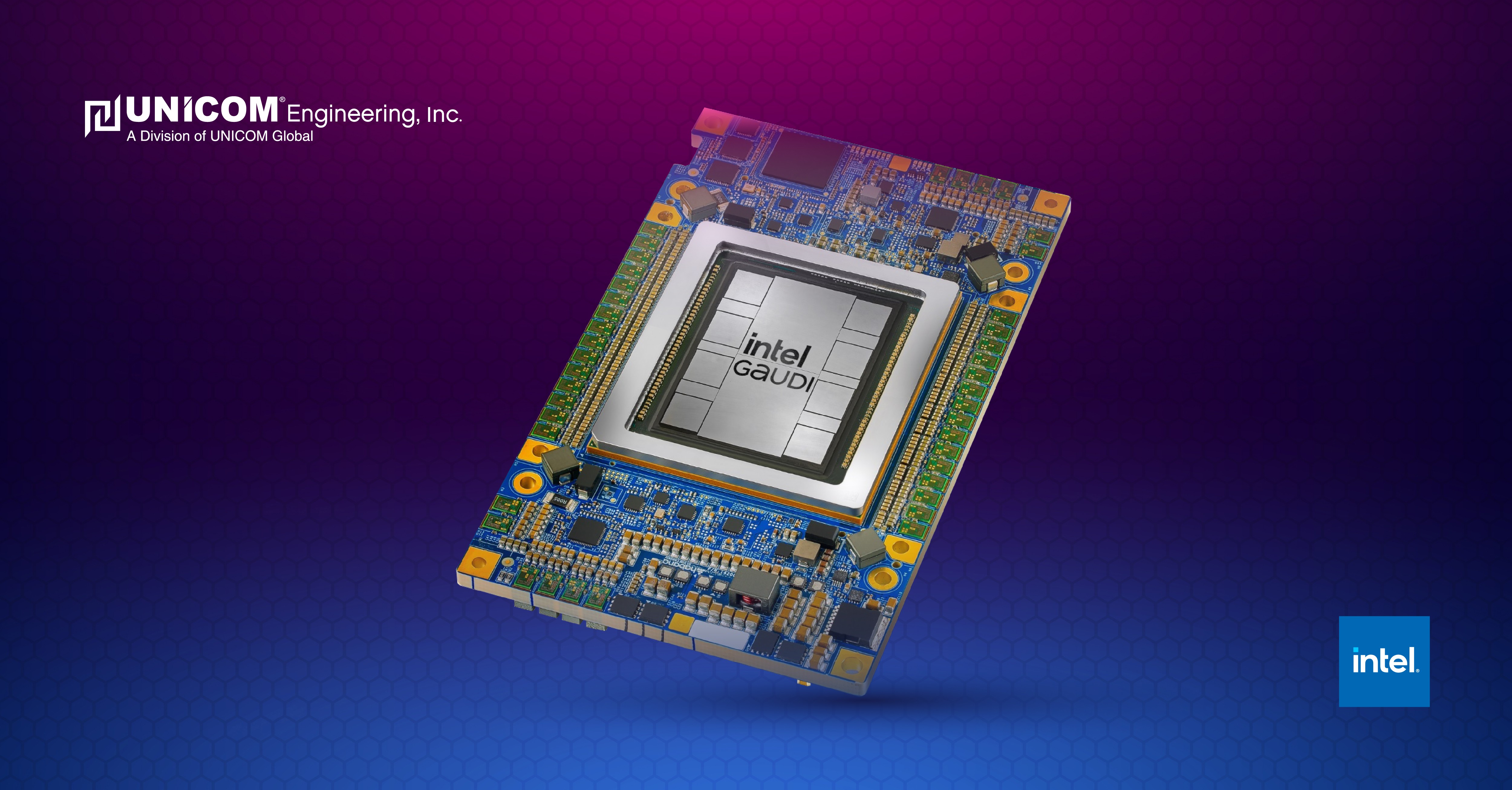Intel’s Gaudi 3 accelerator marks a major leap in AI infrastructure, purpose-built for the demands of generative AI (GenAI) workloads across large language models (LLMs) and multimodal AI. This advanced architecture blends innovative hardware elements with an open, flexible software ecosystem, delivering a powerful solution for enterprises focused on performance, scalability, and cost efficiency.
GenAI Support and Architectural Overview
Intel Gaudi 3 is designed to meet the surging demand for generative AI, offering a compelling alternative to traditional proprietary solutions. With open standards, customizable networking, and seamless software integration, Gaudi 3 enables scalable deployment of LLMs, multimodal models, and AI workloads across text, vision, and other domains.
Architectural Implementation Intel’s design philosophy with Gaudi 3 centers on parallelism, efficiency, and flexibility:
- Process Technology: Built on 5 nm lithography for efficient power and performance.
- Parallelization: MMEs, TPCs, and networking interfaces operate concurrently, maximizing throughput.
- Supported Data Types: FP32, TF32, BF16, FP16, FP8—ensuring compatibility with current and emerging deep learning models.
Heterogeneous Compute Engine
At the heart of Gaudi 3 is a heterogeneous compute engine that integrates diverse AI-specialized hardware blocks to accelerate deep learning.
- Matrix Multiplication Engines (MMEs): Specialized units for processing vast numbers of simultaneous operations fundamental for AI algorithms.
- Tensor Processor Cores (TPCs): Programmable cores designed for high-throughput tensor operations and flexible model execution, critical for both training and inference.
- Networking Interface and Integrated Memory: High-bandwidth memory and parallel I/O support the scale of LLM and GenAI workflows.
Tensor Processor Cores (TPCs)
TPCs are Gaudi 3’s primary programmable units for tensor computations, offering:
- Scale: 64 TPCs per accelerator—more than double the previous generation.
- Flexibility: Support for diverse tensor operations and custom kernels.
- Throughput: Efficient handling of large batch sizes and complex architectures.
- Software Integration: Native compatibility with PyTorch, enabling rapid prototyping and deployment with minimal code changes (often just 3–5 lines).
Matrix Multiplication Engines (MMEs)
MMEs are the workhorses for compute-intensive AI operations:
- Engine Count: Eight MMEs per device.
- Parallelism: Each MME can execute up to 64,000 parallel operations, making it exceptionally efficient for deep learning tasks such as backpropagation and self-attention mechanisms.
- Precision Support: Optimized for BF16 and FP8 formats.
- AI Operations: Accelerates dot products, convolutions, and matrix multiplications—core to GenAI models.
Memory and Networking for Large Models
In addition to computation and design, Intel recognizes the need for high-speed storage, connectivity, and throughput. Intel Gaudi 3 goes beyond compute cores by addressing memory and data movement challenges inherent to generative AI:
- Memory:
o 128 GB HBMe2
o 3.7 TB/s memory bandwidth
o 96 MB of on-board SRAM
Enables serving and processing of LLMs with 70B+ parameters on fewer accelerators, reducing fragmentation and cost. - Networking:
o 24x 200 Gb Ethernet ports per device
o Open-standard RoCE (RDMA over Converged Ethernet)
o Up to 1.2 TB/s peak throughput
Supports seamless scale-out–from single racks to multi-thousand-node clusters—without proprietary interconnects.
Enterprise-Class Scalability
Gaudi 3 is built for flexible deployment across enterprise and hyperscale environments:
- PCIe form factor: Ideal for inference, RAG, and model fine-tuning at lower power envelopes (600W).
- Universal Baseboard / OAM: Supports large-scale training clusters. While the PCIe form factor is optimized for edge and enterprise inference workloads, OAM is designed for high-performance training in data center environments, enabling better thermal management and scalability across racks.
- Software stack: Fully integrated with PyTorch, Hugging Face, and the Optimum Habana.
- Migration tools: Minimal code changes required when porting from competitor workflows.
- Open Platform for Enterprise AI (OPEA): Promotes a secure, scalable AI ecosystem in collaboration with the Linux Foundation and over 40 partners.
Build Your Next Intel Gaudi 3 Deployment with UNICOM Engineering
Intel’s Gaudi 3 architecture delivers a heterogeneous, highly scalable solution built for the Gen AI era. With its powerful compute, efficient memory, and flexible networking, Gaudi 3 is engineered to match—and often exceed—the performance and value of established solutions.
Ready to accelerate your GenAI strategy? Partner with UNICOM Engineering to design and deploy a Gaudi 3-powered solution tailored to your enterprise’s needs. Whether you're scaling LLM training, optimizing inference, or building multimodal AI workflows, our team is here to help you unlock the full potential of Intel’s GenAI platform. Connect with us today to learn more.
